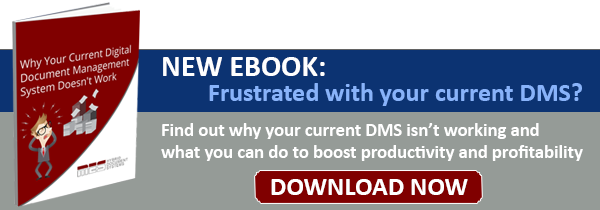 Is your business meeting all of the record retention requirements that it should be? Records are critical for every business' operation, so if your answer to the above question is no – or you are not sure – then you have some work to do. You need to be 100 per cent sure that your business is handling its records the right way by making certain that you are meeting all of the record retention requirements for businesses like yours. To make sure that you are doing everything that you need to do in order to effectively manage records for your business, we are going to look at the record retention requirements that you need to follow.
Is your business meeting all of the record retention requirements that it should be? Records are critical for every business' operation, so if your answer to the above question is no – or you are not sure – then you have some work to do. You need to be 100 per cent sure that your business is handling its records the right way by making certain that you are meeting all of the record retention requirements for businesses like yours. To make sure that you are doing everything that you need to do in order to effectively manage records for your business, we are going to look at the record retention requirements that you need to follow.
Record retention requirements for businesses to save money and increase efficiency
You need to switch to digital records – and then treat them right
Switching to digital records is no longer just a popular trend. It is a mandate. Not only do digital records save your business time and money, but they allow you to do certain things that would otherwise be impossible. For example, digital documents allow you to share information with an employee or business partner who does not have access to anything but their mobile phone.
Even if you are currently using digital records, you need to make sure that you are doing the following things:
- Use a professional document scanning company to convert your primary documents to digital files
- Instead of letting your digital documents sit on your computer unmanaged, invest in document management software
- Add a high-powered scanning solution to allow your company to convert large volumes of documents to digital as needed
- Maximize your company's digital security with the latest software
- Enhance the security of your digital documents and make them accessible anywhere by using a cloud service
You must create a list of things that you should not destroy
There are some documents so vital for your business in the long-term that they must be retained indefinitely. You should not simply hope that your company's employees will know what should be retained and what can be destroyed. In order to prevent any accidental deletions of critical records, create a list of document categories that should always be kept (when you are using digital documents, you can even remove the ability to delete certain files). For example:
- Legal documents
- Employee pension and retirement records
- Accountant audit reports
- Unexpired contracts
- Purchase receipts
These are just a few examples. Be sure to add any type of document that your business needs to protect to this list.
Record retention requirements for businesses to comply with the law
You have to destroy personal information that you do not absolutely need
In order to reduce the likelihood of personal data being stolen, the government compliance laws requires that you delete all personal data that you do not explicitly need to identify someone.
You need to be mindful of how your prepare documents for government submission
The government has explicit guidelines for how they want document submitted to them. This includes:
- .jpg or .tif format for images only
- Documents must be submitted in full (partial documents are not accepted)
- 300 dip minimum for images
- Do not submit encrypted documents or password protected
Keep tax records for six years
The Canada Revenue Agency may legally audit your taxes within six years after they were filed, so keep all tax documents within this time period to remain prepared.
Following these requirements will make your business run smoother
In addition to being required, the record retention requirements discussed in this article will also enhance your ability to do your job.

